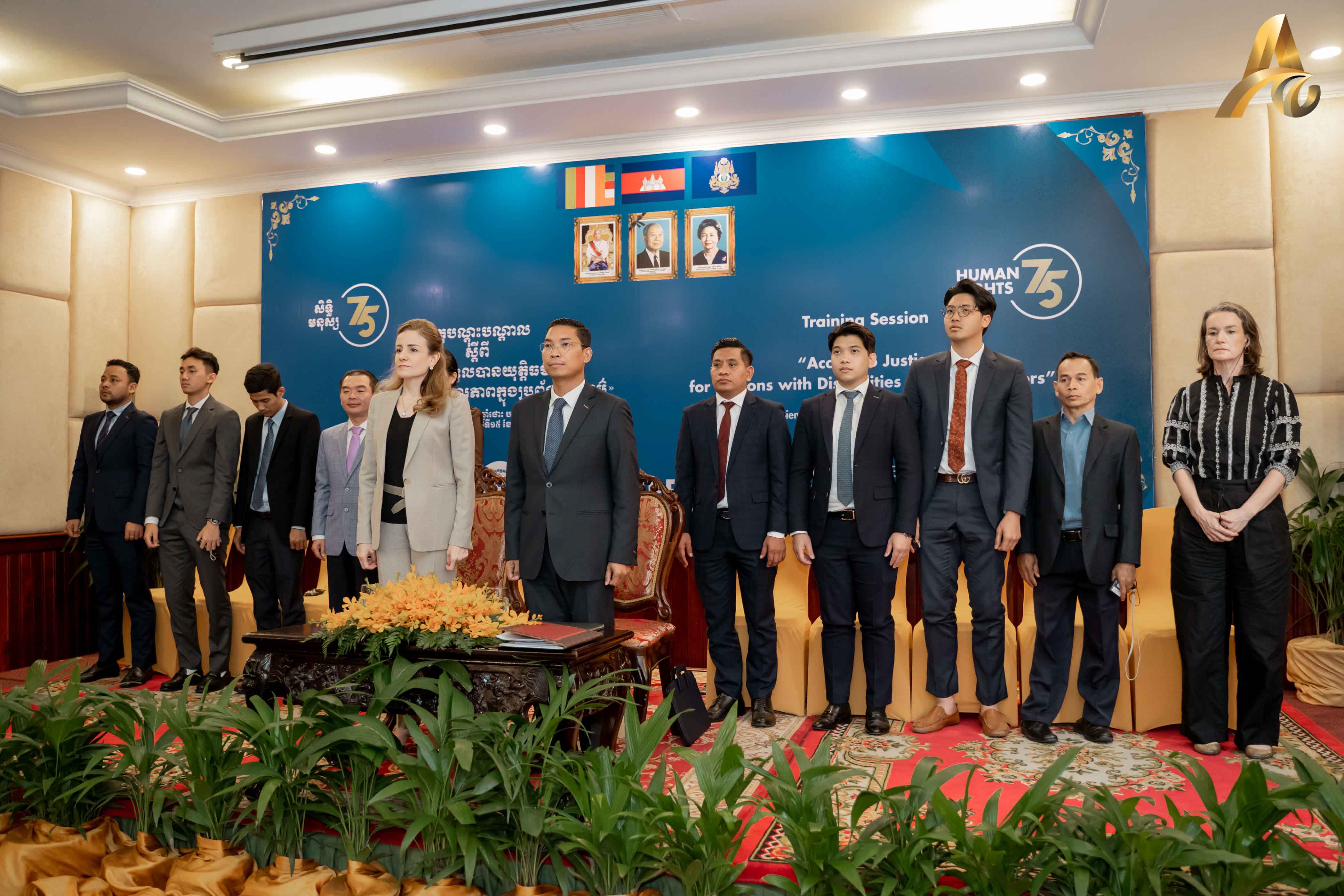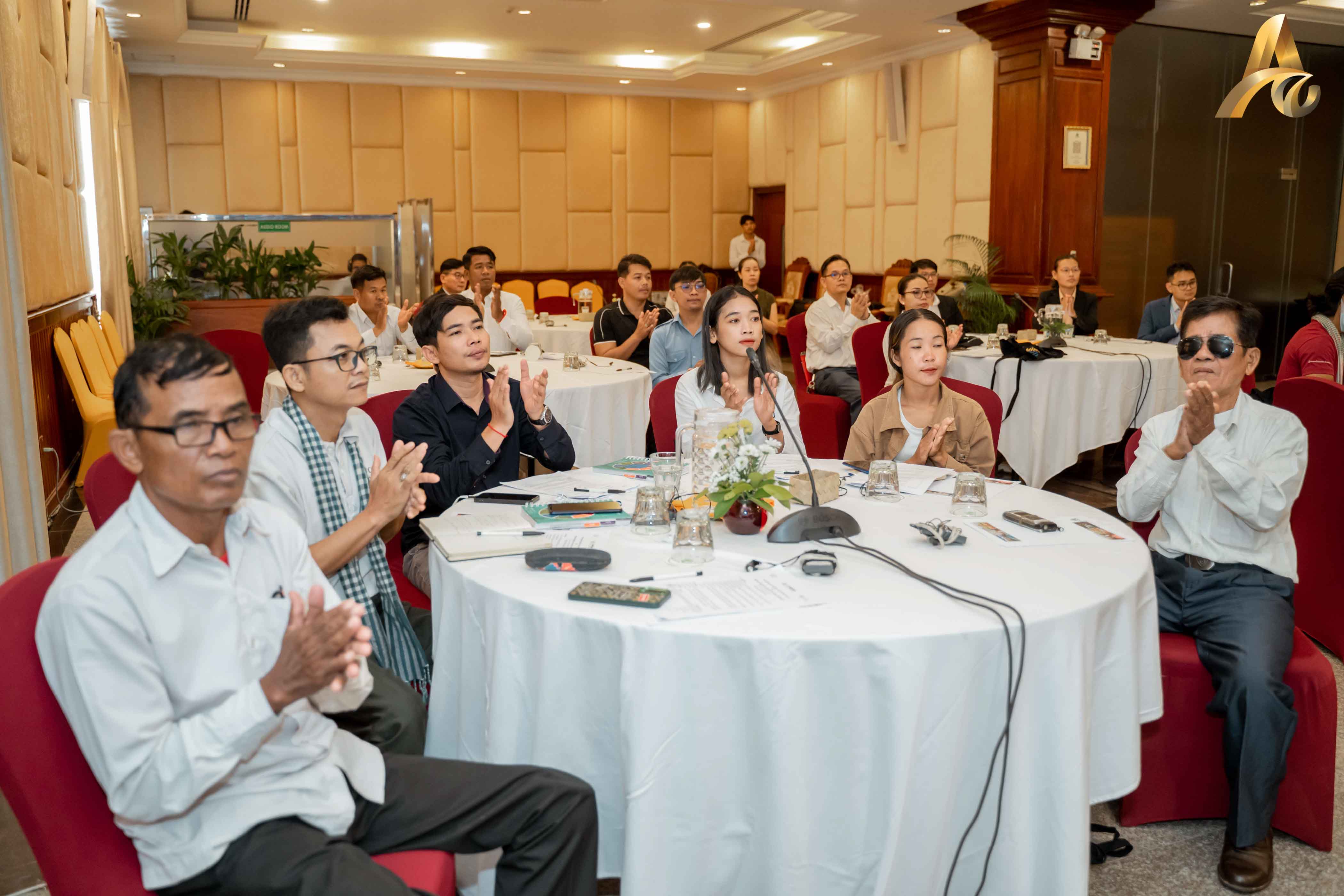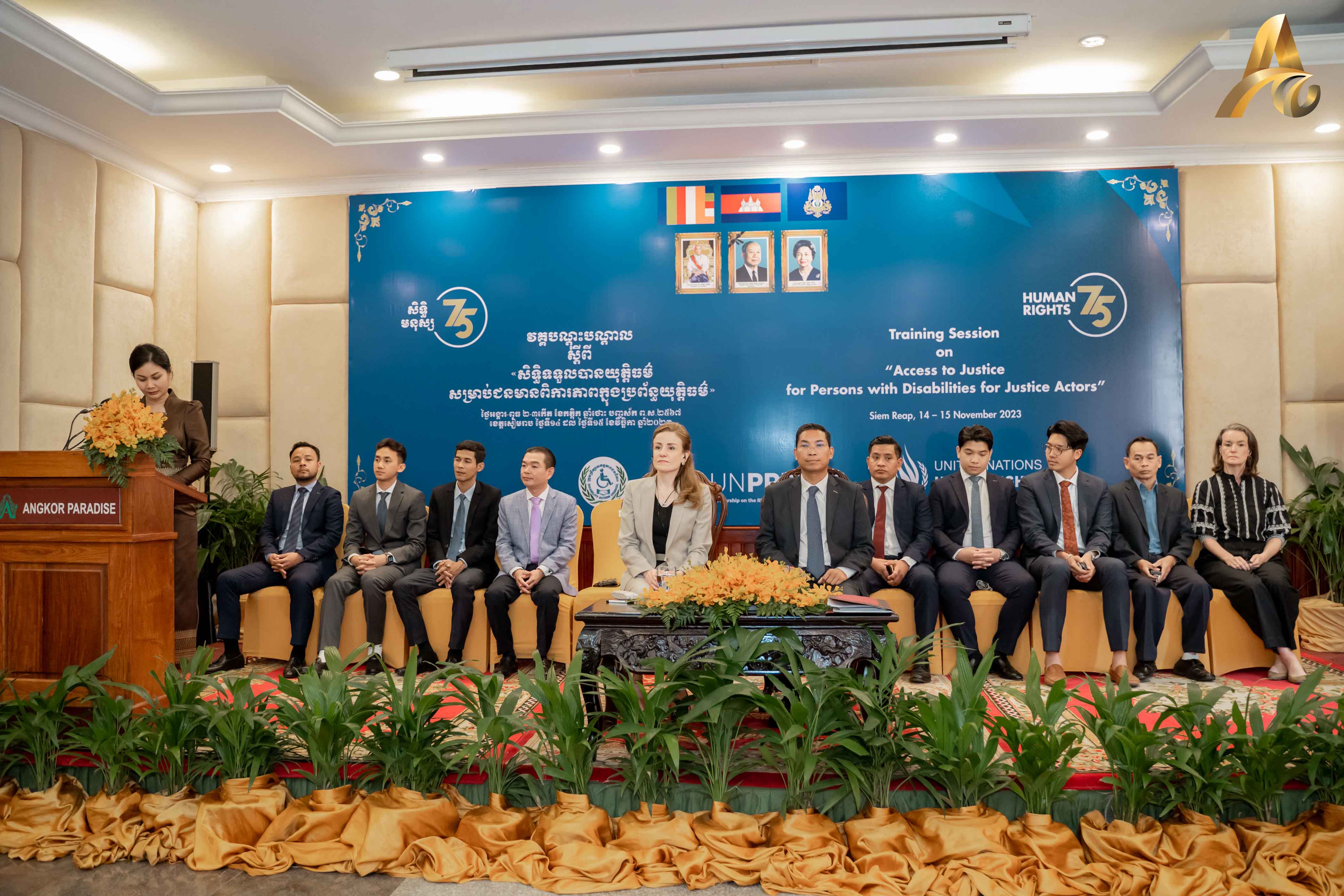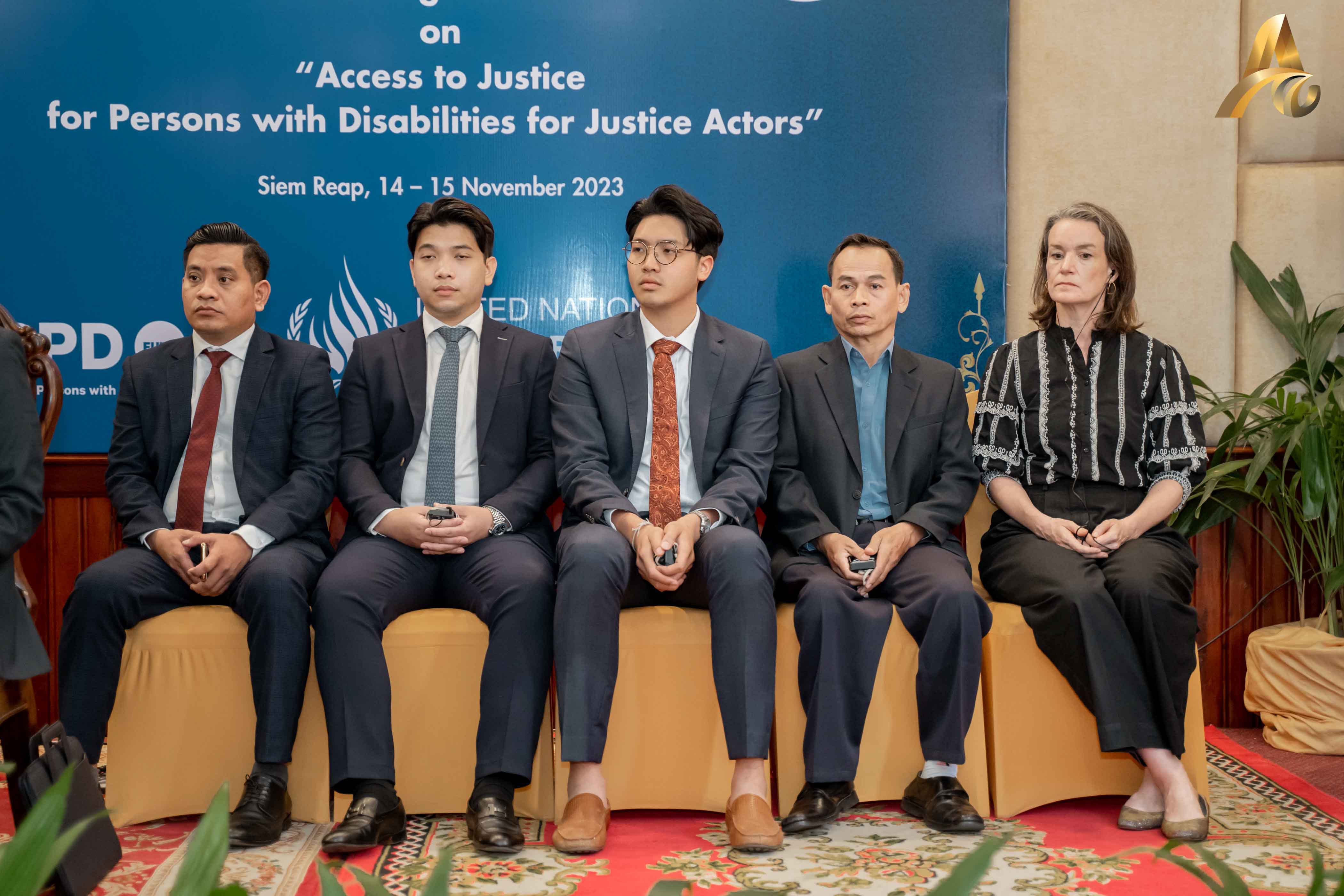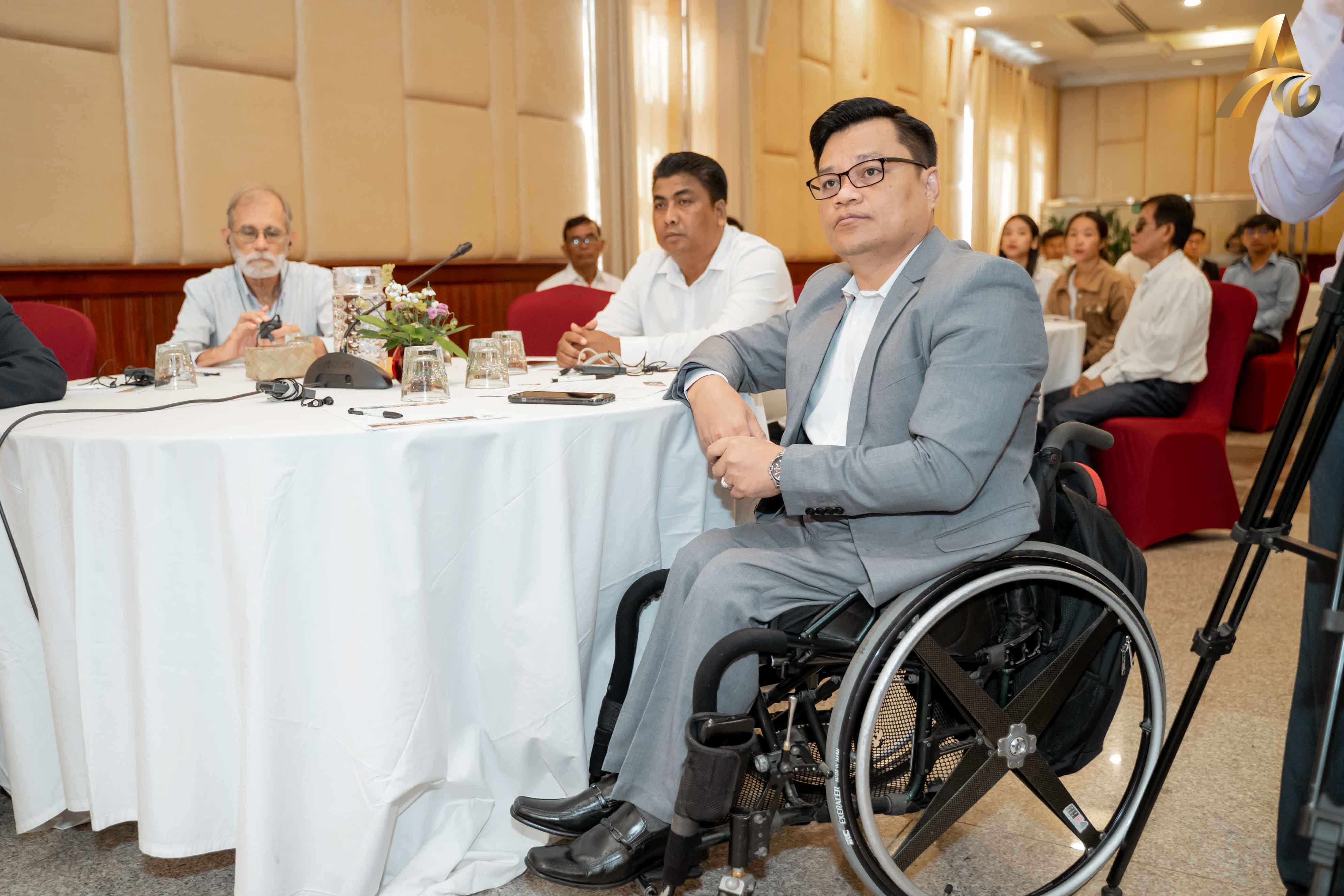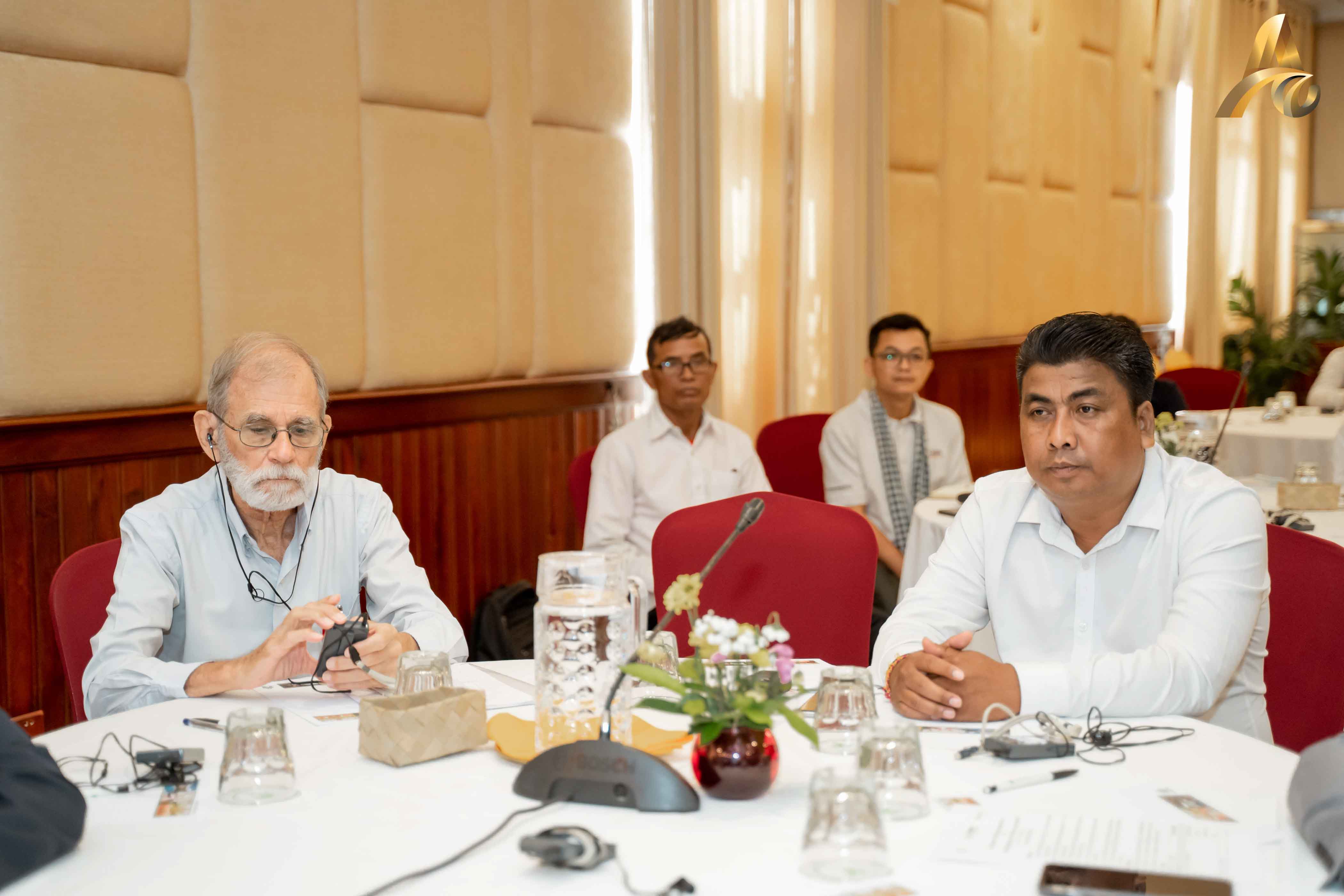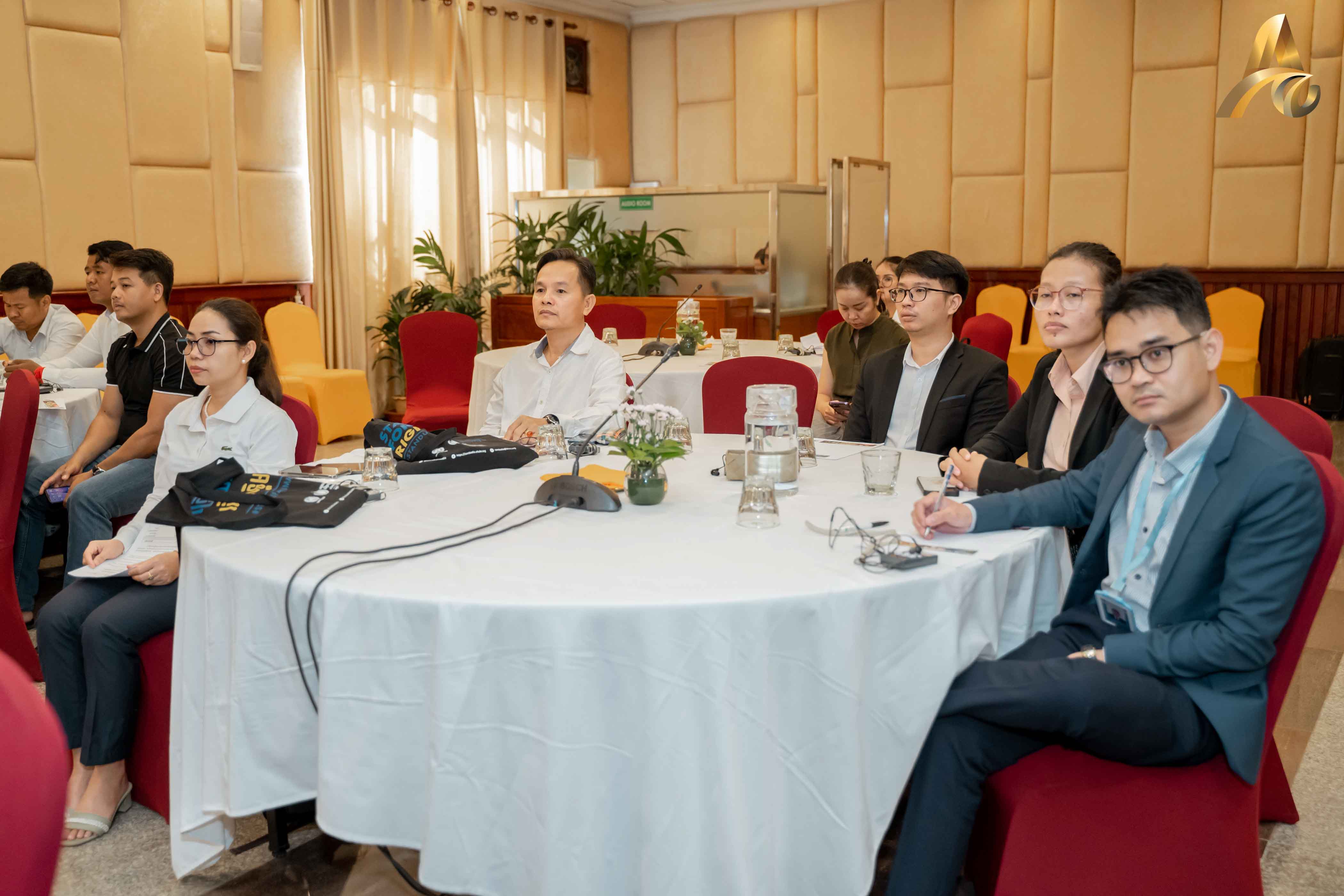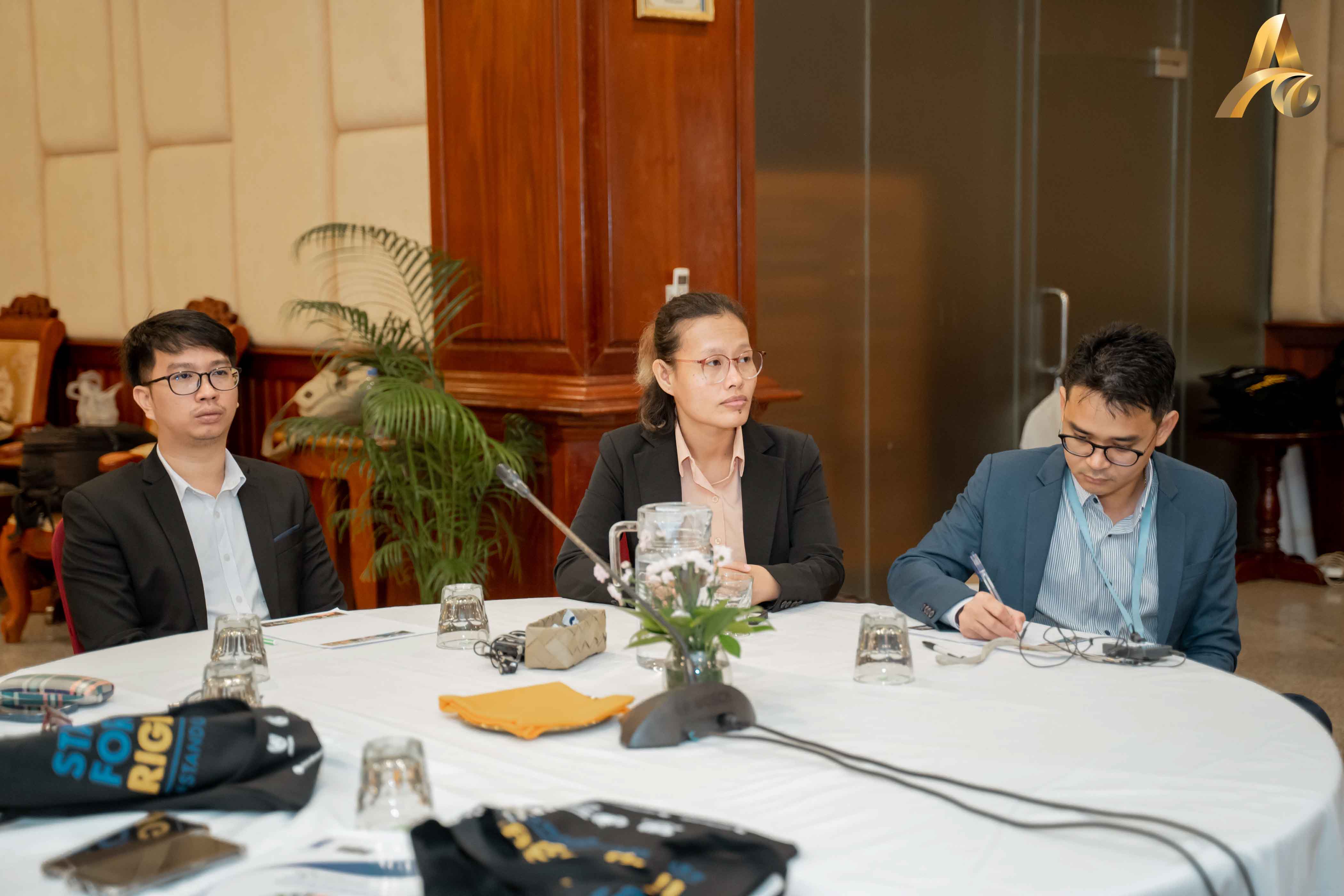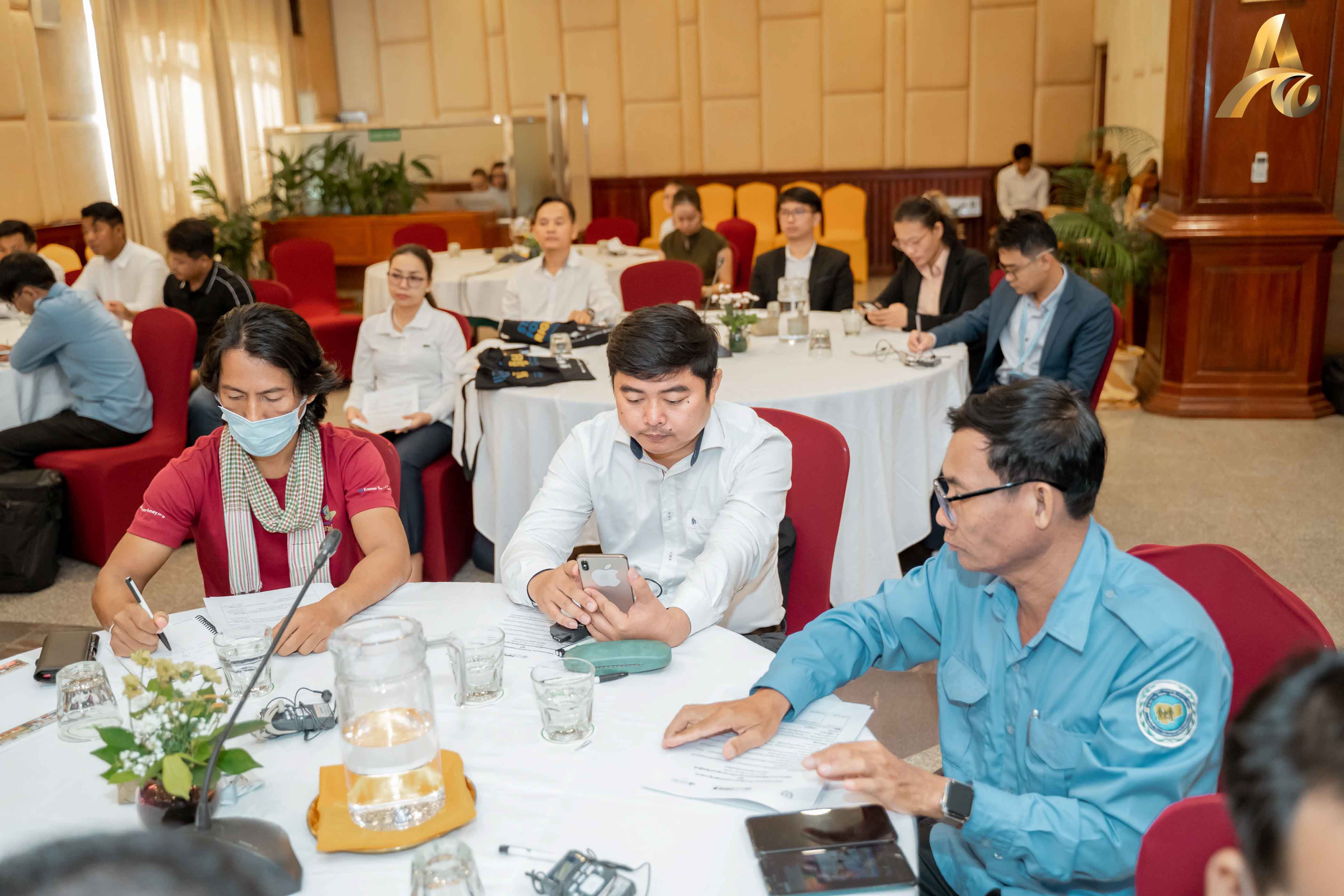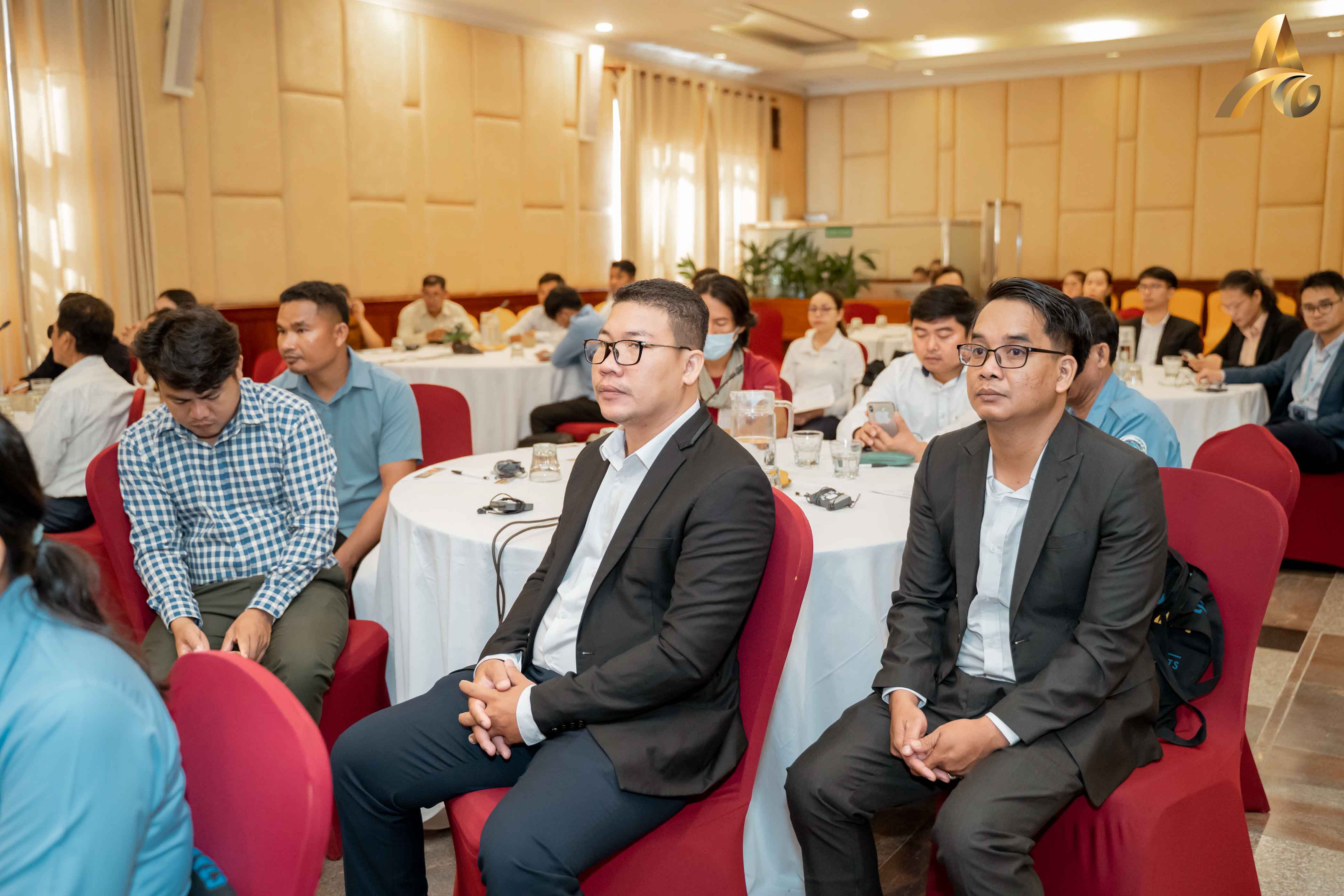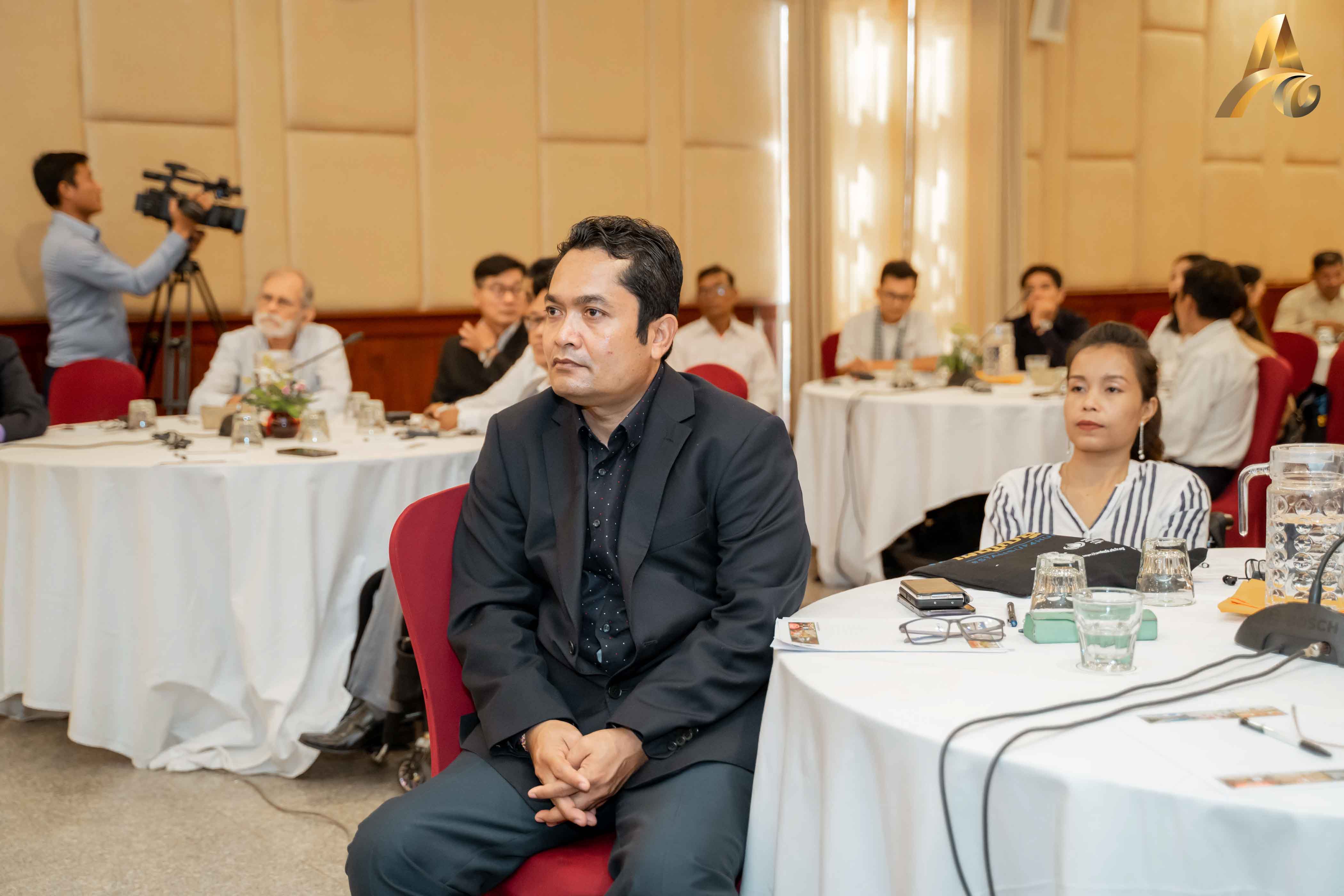SIEM REAP: Officials in Siem Reap are receiving training on "The Right to Justice for Persons with Disabilities in the Justice System” with the support of the Ministry of Social Affairs and the Office of the United Nations High Commissioner for Human Rights (OHCHR) this week.
Representing Social Affairs Minister Chea Somethy, Secretary of State Em Chan Makara made opening remarks at the training course, stressing the need for certain guaranteed freedoms for persons with disabilities (PWD) that allow them to participate fully in society without discrimination.
The November 14 training session was attended by OHCHR representative for Cambodia, Roueida El Hage and Siem Reap Deputy Governor Mony Rainsy, in addition to prosecutors and judges from the province, who were there to better understand and implement the UN’s vision of equal rights for persons with disabilities.
Sec. Em Chan Makara, who is also Secretary-General of the Disability Action Council, asked those in attendance to work together to ensure the freedom of PWD by helping them avoid exploitation and violence and providing them with freedom of movement, independence and much-needed services within their communities.
He stated that the Royal Government of Cambodia protects the rights to freedom of movement and expression. He noted that PWD have the rights to real estate ownership, inheritance rights, minimum wage and the right to register for government documents like driver’s licenses and the newly released Disability ID card.
He said that the Ministry has put a new law in place to address the issues faced by deaf women who try to report abuse. He explained that in the past, women were often misunderstood or misinterpreted because they themselves did not know sign language, leaving interpreters struggling to do their jobs.
"When she was abused, especially for rape, what was worrying was that the translator was translating the deaf victim's language into a language for officials and court,” he said. “If they [interpreters] learn sign language, that does not matter. The problem is that the deaf person did not learn sign language…so, even with a sign language interpreter it still doesn’t help."
He then thanked the OHCHR representative for responding to the Ministry’s request to provide training for justice officials in various provinces. He also thanked Siem Reap’s Deputy Governor for her contribution to disability rights, especially in the preparation of road signs to assist persons with disabilities.
The Cambodian government says that the disability sector is a main priority in its new economic Pentagon Strategy, along with women’s rights. Through the National Disability Policy and the UN’s Law on the Protection and Promotion of Human Rights, Cambodian officials have introduced a number of laws, regulations and policies to ensure non-discrimination, equal opportunities and full participation for persons with disabilities in society.



